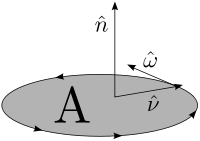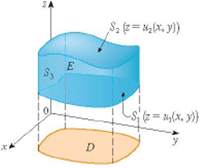Class Meetings: MTWR 8:00
- 9:10 in CSSC 237
INSTRUCTOR: Geoff Hagopian, OFFICE: M12, PHONE:
776-7223.
E-mail: ghagopian@collegeofthedesert.edu
OFFICE HOURS: MTWR: 9:15 – 10:30
COURSE DESCRIPTION: This course extends the concepts of differentiation and integration introduced in the first two semesters of calculus to functions where the input and/or the output can be mutlidimensional - that is, you can have several variables in the input and/or several variables in the output. Topics include solid Euclidean geometry, vector algebra in 3 dimensions, line and surface integrals, multiple integration in rectangular, cylindrical and spherical coordinates, extreme values, parameterized space curves and surfaces, divergence, directional derivatives, gradients, Gauss', Green's and Stokes' theorems.
COURSE OBJECTIVES: Upon completion of this course, the student will be able to:
a. Analyze
graphic, numeric and formulaic representations for functions of several
variables.
b. Apply
operations on vectors and matrices including dot products, cross products and
determinants.
c. Use partial
derivatives to compute directional derivatives and gradients.
d. Use the chain
rule to compute partial derivatives for composite functions of several
variables.
e. Use partial
derivatives to compute first order
f. Calculate
local and global extrema, with and without constraints, including
applications.
g. Set up and
compute iterated integrals with rectangular, cylindrical and spherical
coordinates, including applications.
h. Create and
interpret parameterizations of curves and surfaces.
i. Compute line
integrals and surface integrals, with applications.
j. Use vector
analysis, especially the theorems of Gauss, Green and Stokes to interpret and
evaluate divergence, flux, gradients and curl.
TEXTBOOK: Multivariable Calculus: Early Transcendentals, 6e, by James Stewart. Emphasis in this text is on understanding the definitions and theorems fundamental to calculus, as well as mastering routine computations. It is critical that you read the text, make good notes, keep up with the assigned problems and prepare questions about what you're learning for participation in class. We may not cover every problem type or every problems-solving approach during class, but you will be responsible for everything in the assigned reading and problems from the text.
EXAMS: There will be five chapter tests (one after each chapter) and a cumulative final exam. The point of the exams is to provide an opportunity for you to demonstrate your understanding of the concepts covered. The in-class tests are timed so you need to really understand the ideas before you start the exam and then be relaxed and confident enough in your work to be able to show what you know. If you are well prepared, you will have enough time for the exams.
HOMEWORK: Problem solving in small groups or by yourself is essential practice for success in this course. If you complete
(and understand) the homework assignment for each section, you should be well
prepared for quizzes and exams. To help you with that we have an on-line homework system, WebAssign, which gives you instant feedback when you answer a question. Many students find this a very effective learning tool. WebAssign homework will be assigned and you can get class credit for completing those assignments.
The Class Key: dccd.cc.ca 8378 6641
Bring your questions from the homework for discussion at the beginning of each class, when we will work through as many questions over the previous night's homework as time allows.
GRADE: Your grade in this class will be a weighted average of your final exam, chapter test, homework scores.

